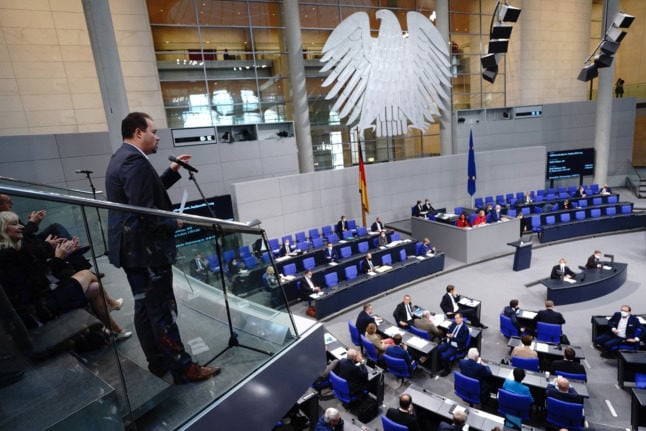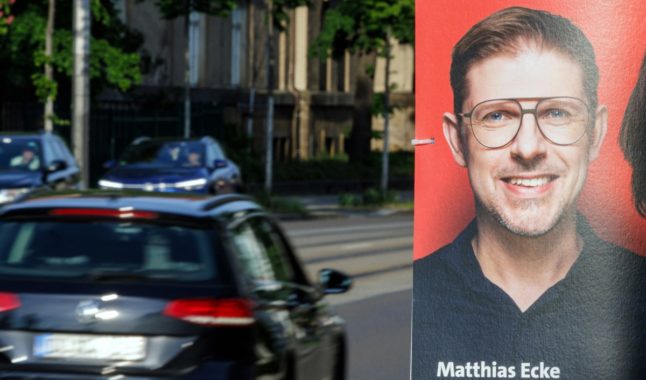According to reports in Zeit, and other German media, MPs working in the German Bundestag can use their Covid ‘recovered’ status for up to six months in the debating chamber of the Bundestag.
A parliamentary spokesperson told the news site that the law that dictated the Covid rules in the federal parliament referred to the Covid-19 Protective Measures Exemption Ordinance.
“At the time the general order was issued, it provided for the period of 28 days to six months after infection, which continues to apply,” they confirmed.
Since January 15th, the period of time in which somebody counts as ‘recovered’ from Covid has been halved from six months to three for the general public.
The rule change has meant that many unvaccinated people have suddenly found themselves relying on negative tests in order to access ‘3G’ venues, in which proof of vaccination, recovery or a negative test must be presented, or 2G venues, which are restricted to people who are vaccinated and recovered.
READ ALSO: Covid ‘recovered’ status only valid for three months, says German Health Ministry
Had the same rule applied to the Bundestag, the change in the recovered status would have had a particular impact on MPs in the far-right Alternative for Germany (AfD) party, many of whom are either unvaccinated or prefer not to discuss their vaccination status in public.
In the plenary hall, where debates and votes take place, the 2G-plus rule applies, meaning MPs who are neither vaccinated nor recently recovered have to sit in the visitors’ gallery.
Recently, more than 20 AfD MPs moved to this part of the Bundestag, which has been nicknamed the “epidemic gallery” due to the fact that a number of anti-vaccination politicians currently sit there.
In October, AfD parliamentary group leader Tino Chrupalla was infected with Covid, swiftly followed by co-faction leader Alice Weidel in November.
Under the current Bundestag rules, both still qualify as ‘recovered’, though Chrupulla would be excluded from the category in most other workplaces and public spaces in Germany due to the fact that his positive PCR test was taken more than 90 days ago.



 Please whitelist us to continue reading.
Please whitelist us to continue reading.
Maybe one Friday night there should be an accidental fire there, so we can hurry things along and Sholz can make himself Führer.
Could this not be seen as a way to segregate people that have different views. I bet he can’t wait to just, disappeared the dissenters.
Truly astonishing what’s happening. Old habits die hard.
Do I have this right? They are having a debate on a vital topic, one that will effect personal freedom, one in which 60% of Germans say the country is dividing, and the MPs on the other side of the debate are not permitted to speak? Seriously, do I have this right?
They are not permitted in the chamber.
From the photo. It looks like they have a mic up there. But how they would be able to vote is unclear.
The Bundestag also not giving documents over to the AfD for debate on the vaccine mandates.
I’m struggling to understand how this is even remotely constitutional. Clearly, people voted for the people who are not allowed in the main chamber and those people should be represented (whether I or anyone agrees with their politics is not the issue). This does not feel democratic to me in the least… and actually not too smart on the part of the majority. Long Term, I mean. Won’t a vote on anything from now on somehow be or at the least feel delegitimised?
I can’t say how or if they can vote as I do not know.
Its on par with everything this administration has done thus far.
Yes. It appears to me that Sholz wants to lead as one of his predecessor did.